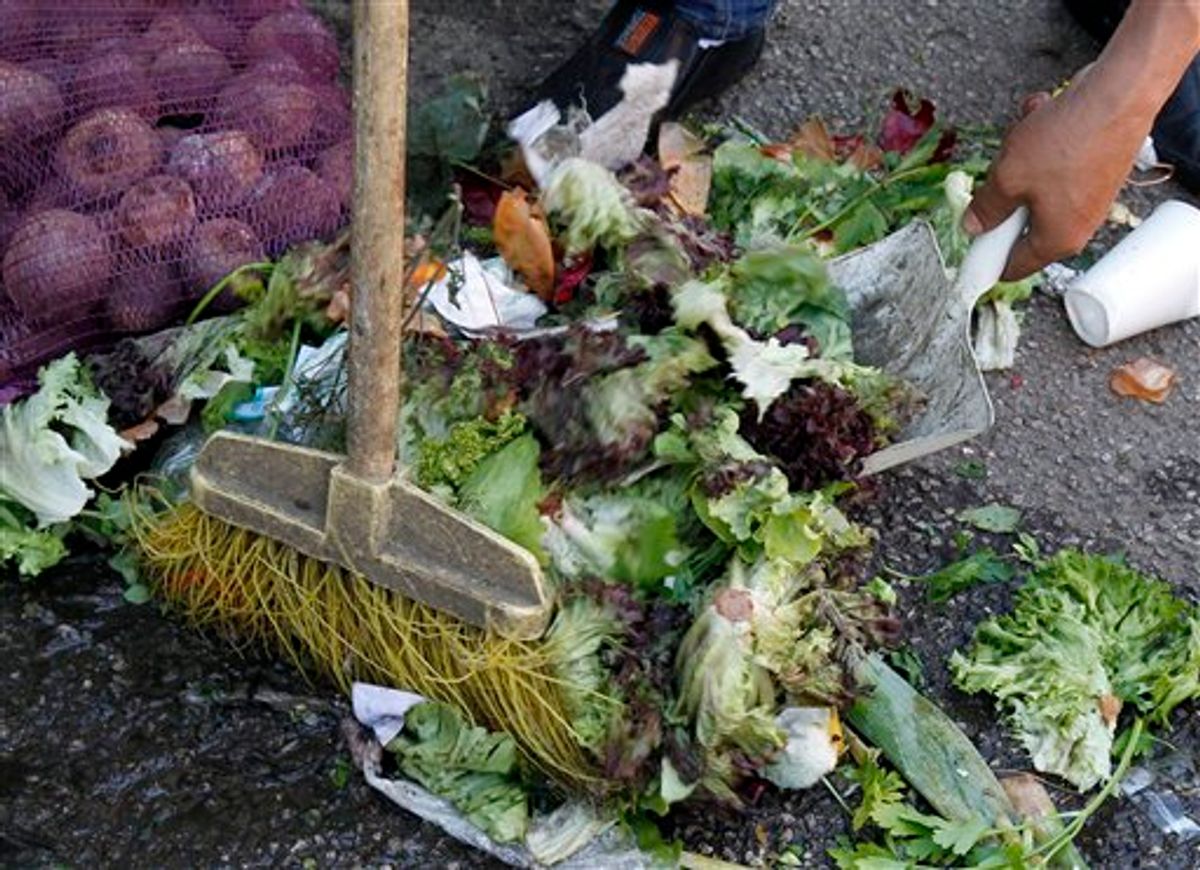Austrian officials inspected supermarkets on Monday for Spanish vegetables suspected of contamination with a potentially fatal bacteria that has sickened hundreds of Europeans. In Germany, the death toll from the outbreak rose to 11.
Spain, meanwhile, went on the defensive, saying there was no proof that the E. coli outbreak has been caused by Spanish vegetables.
Spain's Secretary of State for European Affairs, Diego Lopez Garrido, said Madrid might take action against those pointing fingers at his southern European nation.
"You can't attribute the origin of this sickness to Spain," Lopez Garrido told reporters in Brussels. "There is no proof and that's why we are going to demand accountability from those who have blamed Spain for this matter."
Austrian authorities sent inspectors to 33 organic supermarkets Monday to make sure Spanish vegetables suspected of contamination have been taken off shelves. The move came after a recall and sales ban of cucumbers, tomatoes and eggplants that originated in Spain and were delivered to stores in Austria by German companies.
"If anything is found to be left over, it will be tested and taken off the market," Austrian Health Ministry spokesman Fabian Fusseis said.
While two German tourists have tested positive for enterohaemorrhagic E.coli, also known as EHEC, no so-called homegrown cases have been reported, he added.
In Germany, where the death toll rose to 11 on Monday, officials said even though they know that Spanish cucumbers tainted with EHEC have carried the bacteria, they still have not been able to determine the exact source.
"We have found the so-called EHEC pathogens on cucumbers, but that does not mean that they are responsible for the whole outbreak," Andreas Hensel, president of Germany's Federal Institute for Risk Assessment, said on ZDF television.
Spanish Health Minister Leire Pajin, noting that no Spanish cases have been reported, urged Germany to speed up its probe and establish proof of what has caused the outbreak. Germany's allegations "create alarm and affect the producers of a country without any evidence," she said.
In Poland, officials said Monday that a woman has been hospitalized in serious condition after returning from a trip to the northern German city of Hamburg, where at least 467 cases of intestinal infection have been recorded.
On Sunday, authorities said those included 91 cases of the more severe hemolytic uremic syndrome, but the officials noted on Monday that the number of new diarrhea cases was declining. HUS is a rare complication arising from infection associated with the E. coli bacterium.
Czech officials said tests on 120 potentially tainted Spanish cucumbers pulled off shelves on Sunday are expected to be concluded in two days. No illnesses have been reported.
In Italy, meanwhile, the country's paramilitary Carabinieri tainted food squad has been on the lookout since Saturday for any contaminated cucumbers, checking imports from Spain, the Netherlands and other European countries. So far, lab analyses have come back negative, and no cases of food poisoning have been reported.
Still, Italy's agriculture lobby, Coldiretti, urged Italians to support their local growers to avoid imports.
Currently, Italian supermarkets are full of peaches, apricots, cherries and plums from Spain. As for pickles and cucumbers, Italy imported some 8 million kilograms (17 million pounds) from Spain last year.
EU spokesman Frederic Vincent said Sunday that two greenhouses in Spain that were identified as the source of the contaminated cucumbers had ceased activities. The water and soil there are being analyzed to see whether they were the problem, and the results are expected Tuesday or Wednesday, said Vincent.
The EU notified member states Friday of the source of the outbreak, which has affected primarily the Hamburg area of Germany and, to a lesser extent, Sweden, Denmark, the United Kingdom and the Netherlands, according to Vincent.
--------
Karel Janicek in Prague, Monika Scislowska in Warsaw, Poland, Frances D'Emilio in Rome, Ciaran Giles in Madrid and David Rising in Berlin contributed.



Shares